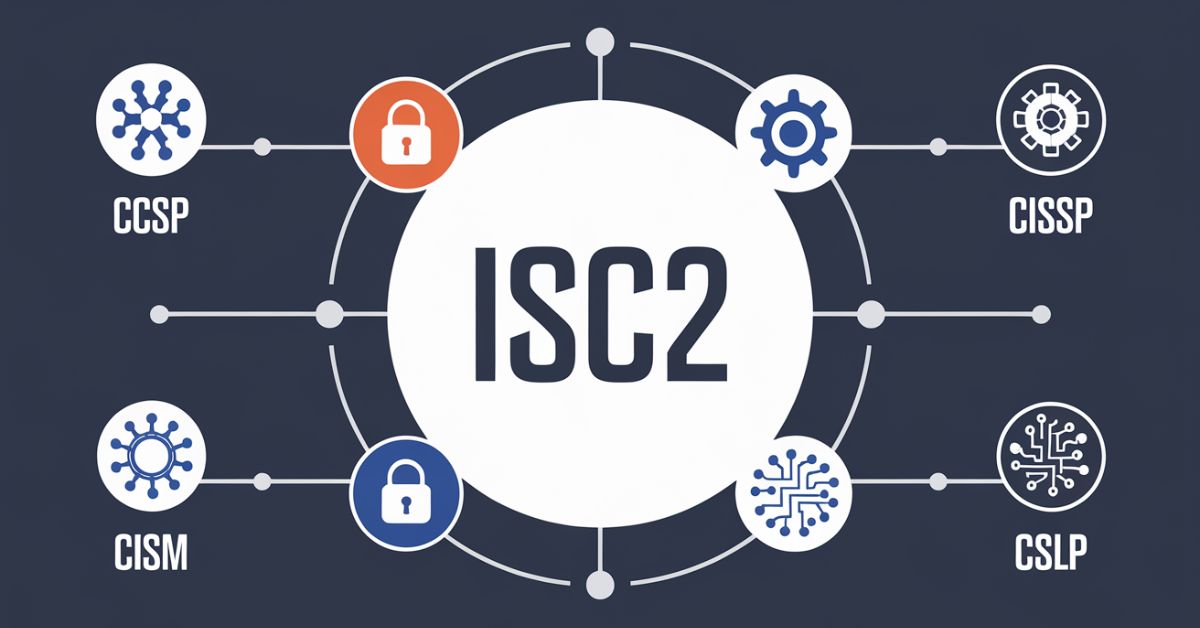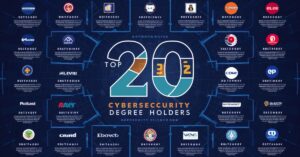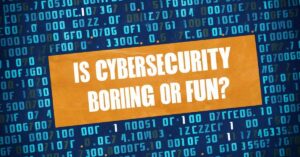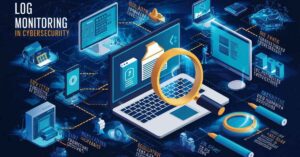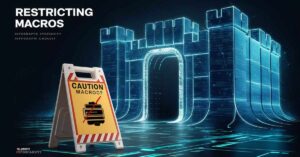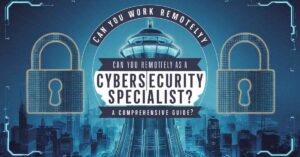In today’s rapidly evolving digital landscape, cybersecurity professionals are in high demand. As organizations strive to protect their sensitive data and systems from increasingly sophisticated threats, the need for skilled and certified professionals has never been greater. Enter the International Information System Security Certification Consortium, or (ISC)², a globally recognized leader in cybersecurity certifications. This article will provide an in-depth exploration of ISC2 certifications, offering valuable insights for both aspiring and seasoned cybersecurity professionals. ISC2 certifications explained: Overview of every ISC2 certification.
The Value of ISC2 Certifications
ISC2 certifications are more than just acronyms to add to your resume; they’re a testament to your expertise and commitment to the field of cybersecurity. These certifications are widely recognized in the industry and can significantly impact your career trajectory. ISC2 certifications explained: Overview of every ISC2 certification.
Career Advancement: Holding an ISC2 certification can open doors to new opportunities and higher-level positions. Many employers view these certifications as a benchmark for competence in specific areas of cybersecurity.
Salary Potential: According to the (ISC)² Cybersecurity Workforce Study 2021, certified professionals earn an average of $33,000 more annually than their non-certified counterparts.
Networking Opportunities: Certification holders gain access to a global community of cybersecurity professionals, facilitating knowledge sharing and career growth.
“An ISC2 certification is not just a credential; it’s a passport to a world of opportunities in the cybersecurity realm.” – John Doe, CISSP, Cybersecurity Director at TechGuard Inc.
Overview of ISC2 Certifications
ISC2 offers a range of certifications catering to various levels of experience and specializations within the cybersecurity field. Let’s dive into each certification:
1. Certified in Cybersecurity (CC)
The CC is an entry-level certification designed to validate foundational knowledge in cybersecurity. It covers five domains:
- Security Principles
- Business Continuity (BC), Disaster Recovery (DR) & Incident Response Concepts
- Access Controls Concepts
- Network Security
- Security Operations
Who should pursue this: Individuals new to cybersecurity or looking to transition into the field. ISC2 certifications explained: Overview of every ISC2 certification.
2. Systems Security Certified Practitioner (SSCP)
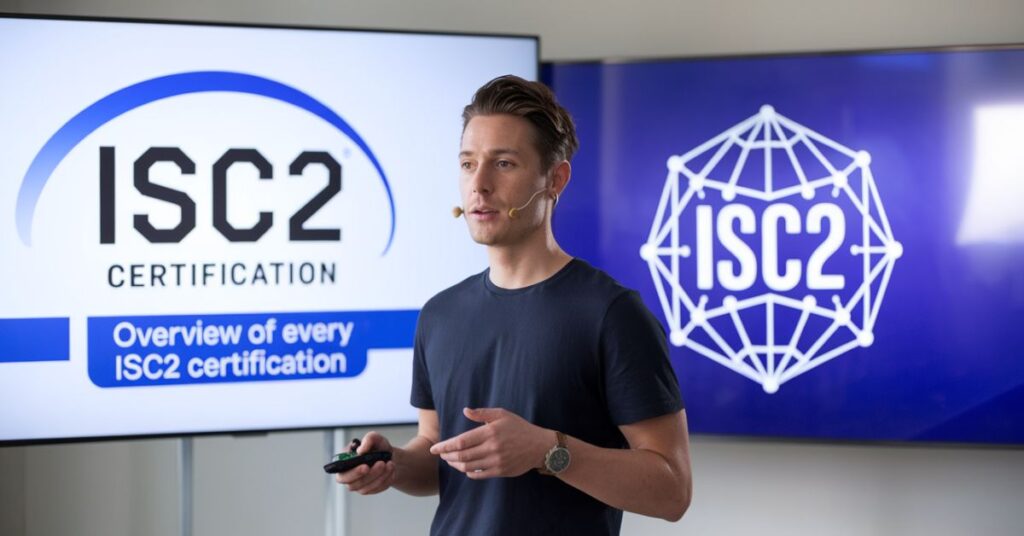
The SSCP is a mid-level certification that demonstrates practical security knowledge and hands-on technical skills. It covers seven domains:
- Access Controls
- Security Operations and Administration
- Risk Identification, Monitoring, and Analysis
- Incident Response and Recovery
- Cryptography
- Network and Communications Security
- Systems and Application Security
Ideal candidates: IT administrators, systems engineers, security analysts, and network security engineers with at least one year of experience.
3. Certified in Governance, Risk and Compliance (CGRC)
The CGRC focuses on the critical areas of governance, risk management, and compliance in information security. Key domains include:
- Governance
- Risk Management
- Compliance
- Information Security Program Development and Management
Target audience: Professionals involved in developing, implementing, or overseeing GRC programs within their organizations.
4. Certified Secure Software Lifecycle Professional (CSSLP)
The CSSLP certification validates expertise in incorporating security practices throughout the software development lifecycle. It covers eight domains:
- Secure Software Concepts
- Secure Software Requirements
- Secure Software Design
- Secure Software Implementation/Programming
- Secure Software Testing
- Secure Software Lifecycle Management
- Software Deployment, Operations, and Maintenance
- Software Supply Chain
Who benefits most: Software developers, security software engineers, project managers, and security analysts involved in software development.
5. Certified Cloud Security Professional (CCSP)
As cloud computing becomes ubiquitous, the CCSP certification has gained significant importance. It covers six domains:
- Cloud Concepts, Architecture, and Design
- Cloud Data Security
- Cloud Platform & Infrastructure Security
- Cloud Application Security
- Cloud Security Operations
- Legal, Risk and Compliance
Professionals best suited: Cloud architects, cloud engineers, cloud security analysts, and risk management professionals.
6. Certified Information Systems Security Professional (CISSP)
The CISSP is widely regarded as the gold standard in cybersecurity certifications. It covers eight domains of the Common Body of Knowledge (CBK):
- Security and Risk Management
- Asset Security
- Security Architecture and Engineering
- Communication and Network Security
- Identity and Access Management (IAM)
- Security Assessment and Testing
- Security Operations
- Software Development Security
Target audience: Experienced security practitioners, managers, and executives with at least five years of cumulative paid work experience in two or more of the eight domains.
7. Information Systems Security Architecture Professional (ISSAP)
The ISSAP is a CISSP concentration that focuses on the design, implementation, and management of complex security architectures. Key areas include:
- Access Control Systems and Methodology
- Communications and Network Security
- Cryptography
- Security Architecture Analysis
- Technology-Related Business Continuity Planning
- Physical Security Integration
Ideal candidates: Senior-level security architects with significant experience in designing and implementing enterprise-wide security solutions.
8. Information Systems Security Engineering Professional (ISSEP)
The ISSEP concentration emphasizes the practical application of systems engineering principles to develop secure systems. Core competencies include:
- Systems Security Engineering
- Certification and Accreditation
- Technical Management
- U.S. Government Information Assurance Related Policies and Issuances
Who should pursue: Security engineers and professionals involved in the design, implementation, and management of secure systems, particularly those working with government agencies.
9. Information Systems Security Management Professional (ISSMP)
The ISSMP concentration focuses on the management aspects of information security. Key areas include:
- Security Leadership and Management
- Security Lifecycle Management
- Security Compliance Management
- Contingency Management
- Law, Ethics, and Incident Management
Target professionals: Senior managers responsible for overseeing enterprise-wide security programs and teams.
The Hardest ISC2 Exam
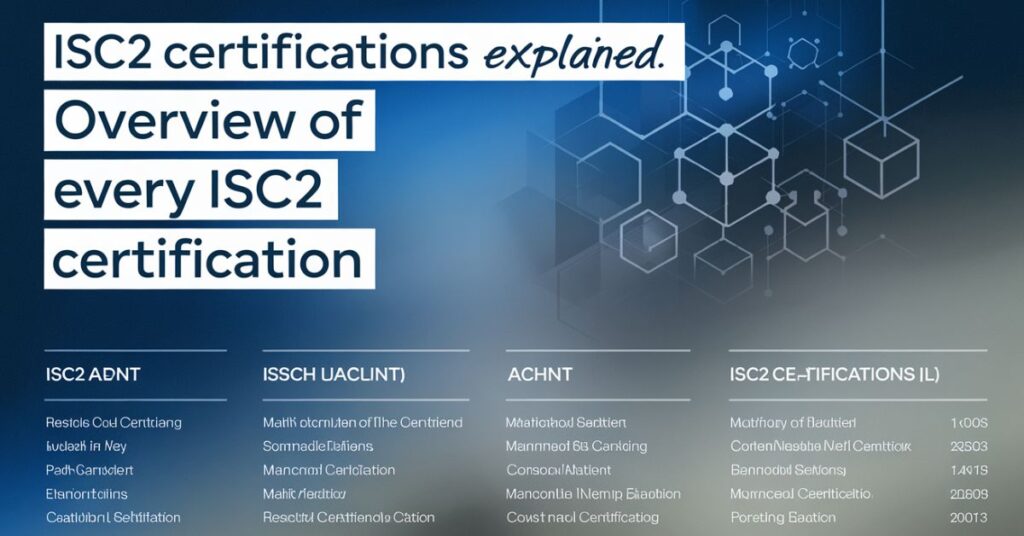
While difficulty is subjective and can vary based on individual experience, many professionals consider the CISSP exam to be one of the most challenging ISC2 certifications. Factors contributing to its difficulty include:
- Broad scope covering eight domains
- Emphasis on managerial concepts alongside technical knowledge
- Complex scenario-based questions requiring critical thinking
- Length of the exam (up to 6 hours)
Tips for tackling challenging ISC2 exams:
- Create a structured study plan
- Use official ISC2 study materials
- Join study groups or online forums
- Take practice exams to familiarize yourself with the question format
- Focus on understanding concepts rather than memorizing facts
Most Valuable ISC2 Certification
The “most valuable” certification can vary depending on individual career goals and industry trends. However, the CISSP is often considered the most prestigious and valuable ISC2 certification due to its comprehensive coverage of cybersecurity domains and its recognition across industries.
Factors to consider when choosing a certification:
- Your current career stage and goals
- Industry demand for specific skills
- Salary potential associated with the certification
- Time and financial investment required
Preparing for ISC2 Certifications
Thorough preparation is key to successfully obtaining an ISC2 certification. Here are some strategies to help you prepare:
- Official Study Materials: Utilize ISC2’s official study guides, practice tests, and online resources.
- Training Courses: Consider enrolling in instructor-led training or boot camps.
- Practice Exams: Take multiple practice exams to familiarize yourself with the question format and identify areas for improvement.
- Study Groups: Join or form study groups to share knowledge and stay motivated.
- Time Management: Create a realistic study schedule and stick to it.
Is an ISC2 Certification Right for Me?
Deciding whether to pursue an ISC2 certification requires careful consideration of your career goals, experience level, and resources. Here’s a table to help you assess your readiness:
| Factor | Consider |
|---|---|
| Career Goals | Does the certification align with your desired career path? |
| Experience | Do you meet the experience requirements for the certification? |
| Time Investment | Can you commit the necessary time for study and preparation? |
| Financial Investment | Are you prepared for the costs of exam fees and study materials? |
| Industry Recognition | Is the certification valued in your industry or target job market? |
FAQs
Q: What are the 4 canons of ISC2?
The ISC2 Code of Ethics consists of four canons:
- Protect society, the common good, necessary public trust and confidence, and the infrastructure.
- Act honorably, honestly, justly, responsibly, and legally.
- Provide diligent and competent service to principals.
- Advance and protect the profession.
Q: What is the full form of ISC2 certification?
ISC2 stands for International Information System Security Certification Consortium. Founded in 1989, ISC2 is a non-profit organization dedicated to advancing the cybersecurity profession.
Q: What is the ISC2 CC summary?
The Certified in Cybersecurity (CC) is an entry-level certification that validates foundational knowledge in cybersecurity. It covers five domains and is designed for individuals new to the field or looking to transition into cybersecurity.
Q: Which of the following are valid ISC2 certifications?
Valid ISC2 certifications include:
- Certified in Cybersecurity (CC)
- Systems Security Certified Practitioner (SSCP)
- Certified in Governance, Risk and Compliance (CGRC)
- Certified Secure Software Lifecycle Professional (CSSLP)
- Certified Cloud Security Professional (CCSP)
- Certified Information Systems Security Professional (CISSP)
- Information Systems Security Architecture Professional (ISSAP)
- Information Systems Security Engineering Professional (ISSEP)
- Information Systems Security Management Professional (ISSMP)
